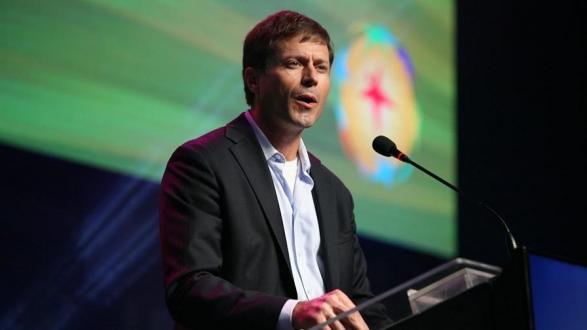The following is a brief update from the Project to Strategically Protect Soft Networks, an effort by Pacific Council member and retired U.S. Army Colonel Steve Miska to create a public-private enterprise that engages the U.S. policy community and infuses creativity into the development of policy measures that effectively protect soft networks. The Pacific Council partnered with SPSN to engage other Council members in a policy development process that sought to ensure our allies’ faith in U.S. missions abroad, such as by hosting a discussion at PolicyWest featuring a former Iraqi interpreter and an American who hosted an Afghan family fleeing violence abroad. Read a recent report featuring SPSN's research on and recommendations for protecting soft networks.
____________________
The death of Iran’s Islamic Revolutionary Guard Corps General and Quds force leader Qassem Soleimani in a U.S. drone strike on January 3, and the ongoing anti-government protests in Iraq against both Iran and U.S. influence in the country, have created a highly volatile situation for the safety of our soft networks in the region.
- A major concern that emerges in the wake of Soleimani's death is the course of action that militias will take against both U.S. forces and individuals affiliated with the United States in Iraq. In the past week, Shia cleric, politician, and militia leader Muqtada Al-Sadr released a statement to the Iraqi parliament calling for the “humiliating” expulsion of U.S. forces from Iraq and the “criminalization of any communication with the U.S. government.” If the situation were to continue escalating, it is possible that Al-Sadr’s call to arms may be answered by militia who have threatened and carried out hostile actions against U.S. troops in Iraq in the past and just recently with the firing of rockets into the Green Zone. To read more about Al-Sadr’s statement, click here.
- Additionally, ISIS has viewed the death of Soleimani as an act of “divine intervention” and will seek to exploit his death and the ongoing tensions between ISIS forces in Iraq to regroup in the country. If ISIS is able to successfully reestablish itself within Iraq, that could be another risk factor to soft network allies. To learn more about this developing situation, click here.
- There also remains the issue of what will be done about soft network allies in the event of a U.S. military withdrawal from Iraq. Although U.S. officials have refused to comply with the Iraqi parliament request for a U.S. withdrawal, the safety of our most reliable allies remains a critical issue that U.S. officials should include in their calculations in the following months. If you are in a position to communicate with senior leaders in government, please consider conveying this message.
- For those who are interested in understanding the current dynamics and positioning of Shia militias within both Iraq and throughout the Middle East, the Washington Institute for Near East Soref Fellow Phillip Smyth is currently working on a mapping project of these organizations. SPSN recommends paying a visit to the site as it is a useful tool to visualize the ongoing situation in the Middle East.
Thank you for your continued support of our work on the Project to Strategically Protect Soft Networks. We hope to keep you up to date on the situation as it continues to develop in the upcoming months. Please consider supporting our soft network allies through your advocacy, volunteer work, and donations.
____________________
Steve Miska is a Pacific Council member and the founder of SLC Consulting. He recently launched a project to Strategically Protect Soft Networks (SPSN), in conjunction with the Pacific Council, to research and recommend policies to protect U.S. allies in conflict zones.
Jure Erlic is a Master’s student at Carnegie Melon University and served as a junior fellow at the project to Strategically Protect Soft Networks in Summer and Fall 2019.
The views and opinions expressed here are those of the authors and do not necessarily reflect the official policy or position of the Pacific Council.




